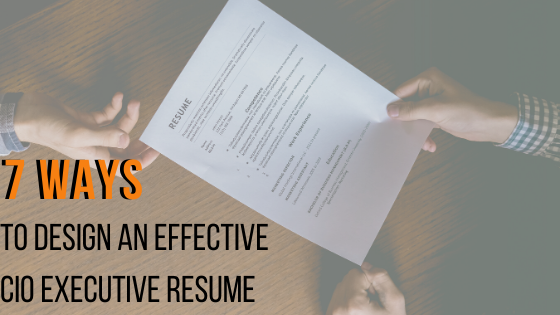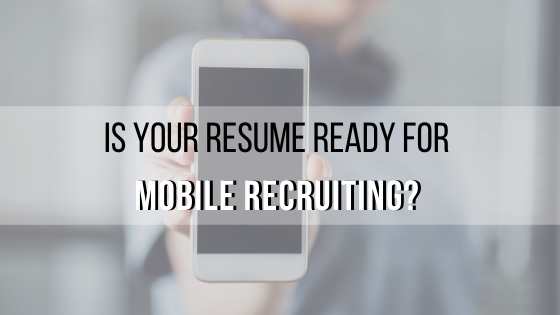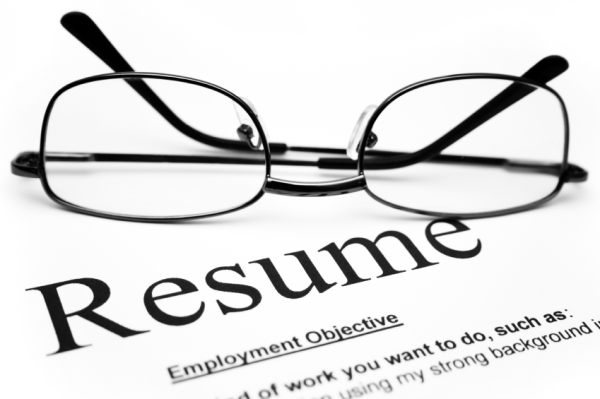
Wondering why recruiters call you back after you have submitted your resume? Feel you’re perfect for the job they posted, you know you can do it, but you are baffled by the fact they have not returned your call? Well, I have some answers for you as to why and outline a few things you can do about it. Read on if you are open to honest, tough talk, you are serious about optimizing your job search time and you are prepared to do something about it. Here goes:
Why Recruiters Don’t Call You Back
1. Just because YOU think you can do the job, does not mean they think you are QUALIFIED for the job.
Search firms are paid a significant fee to evaluate candidates that the client company cannot find on their own. They are charged with having to determine if that candidate will exceed expectations for that client in the given job. The client company gave the search firm a series of parameters to meet that they feel justify paying a fee to the search firm if the candidate embodies those requirements. Frankly, it just does not matter that you think you can do the job. The search firm has to ensure you have the proper years of experience, company caliber exposure, demonstrated a track record of results, culture fit potential, professional training and educational credentials requested before sending you to their client. And if you are missing one piece of it, typically you will not be considered by the search firm and never submitted for the job. As long as you have neither been contacted by the search firm nor submitted to the company by them, apply through a different venue (following a job search plan, networking, submitting directly, company website, etc) that does not add a fee to your head if hired.
2. Search firms are not paid by you, and therefore, do not work for you.
Reputable search firms are paid by their client company ONLY. The company is their client–not you. Credible search firms do not accept fees from candidates for representation to companies. As stated in reason #1, you will receive a call from the recruiter only if your background is dead on for their client. Search firms typically only get paid to make the placement. So if your background will help them get that placement fee since you meet the client requirements, I assure you they will call you. Remember, they work for their client. They do not exist to find you a job.
3.You paid a firm to send your resume to 1,000 recruiters…and it shows.
If you are doing a mass direct email, you cannot expect personalized response results. A very successful direct email campaign has a response rate of 1-2%. If you have a properly targeted, well written direct campaign to 1,000 contacts, you will get 10-20 quality calls. If you have a well-written campaign sent to a random sampling of recruiters, you may get 5-15 calls from recruiters who may not place what you do. And if it is a non-targeted, poorly written campaign, no one will call—or you will receive calls to sell you job search services since you clearly need some help.
4. Search firms don’t place what you do.
You are a Medical Director of a Big Pharma Firm and the recruiter places digital media experts within high tech firms. You live in Wyoming and the recruiter works with companies in New York and New Jersey—no matter how great you are, you are not getting the call. Know your audience before you send your resume.
5. The search firm has no idea what you do.
Your resume is filled with so much corporate-speak and fluff on the first page that they have no idea what you do. Saying ‘Leader in the industry” does not help anyone understand what you do. What kind of leader? What level of leader? What industry? If the recruiter has to work at figuring out what you do, you are not getting the call.
6. They do not have the right job for you.
The search firm actually thinks your background is amazing. They know what you do and are impressed where you do it and how you have done it. But they simply do not have the right job for you. Given that recruiters need to focus on finding candidates that can fill their jobs to make a living, they will not have time to call you, most likely. It’s not personal.
7. Your background is not worth a company paying a 25% fee.
I know this is harsh—but it is true. Accepting this fact about your background does not mean you are doomed to be jobless. It means you will probably not find one through a search firm. This really is not that bad of a lot in life. Search firms account for a small percentage of hires in the US. Most hires are made through networking. If you are unemployed or you have too many jobs in a short period of time, you may fall into this category. If you do not have a series of promotions or you have an eclectic group of varied experiences, you are in this boat, too. Yes, they know it was out of your control…BUT this is a simple economics issue. The supply of these types of candidates is too great right now where companies will not pay a fee for this type of candidate. But they will hire you through other venues without the price tag attached—so go to those venues.
8. The search firm is overwhelmed and, unfortunately, cannot get back to every applicant with the “Thanks, but no thanks” email.
Please do not take it personally when recruiters do not call back to tell you that you are not right for the job. Yes, it is good manners. Yes, they should call/email. But do not cause yourself added stress by thinking it is personal —it is simply a logistics issue regarding limited resources. With the volume of resumes third party and corporate recruiters receive in today’s market, it is physically impossible to get back to everyone, even if they hired a team to do it—which they won’t. To help ease the rejection you experience, set up metrics of outbound activity you commit to performing each week, knowing a certain percentage will reap results. It is a numbers game. It is not a personal attack. It is a reality that a good amount may not get back to you ever.
9. Your resume is posted on all the job boards…for a while.
Companies pay recruiters to find candidates they cannot find themselves. If your resume is posted on all of the job boards for any length of time, you are not exclusive. You are readily available and easily found. When I recruited, I have had past company clients tell me I could not submit candidates that were found on the job boards–even if I sourced that candidate myself or the candidate was referred to me! As frustrating as it was, I understood. Why would they pay me $25,000 for someone they can find readily available on their own? Does this mean you should not be on the boards? Not necessarily. It depends on your story. If you are not working or know that you will be laid off soon and you cannot be without a job, do what you have to do to get that next job. If after reading the article, you know that you will not be well served by recruiters, then you must use other means to advance your career. But consider being selective and not post yourself everywhere. Or consider submitting to job postings only. The best option is to commit to networking within the target company list you create an approach contacts directly.
10. You are looking to switch careers or start your career.
You are a successful pharmaceutical sales manager, who just recently graduated with a bachelors in accounting. Now you are looking to get an entry-level position in accounting. The best option for you to take is to contact companies directly for a position in your new career path. A recruiter cannot help new college graduates typically or individuals who want to change careers. Why? Remember, recruiters, get paid by clients to find candidates who have had prior success in the job at hand. A company is not going to pay a recruiter to hire someone starts a new line of work with no proven track record in the position.
11. Don’t test the waters on the recruiter’s time.
On paper, you may appear too comfortable in your job. Recruiters want to work with candidates who want to make a move. If it seems you may be shopping or comfortable, but not serious about a new position, your resume will be passed over. Reformat your resume to show career progression, achievements, and promotions. If you present yourself as someone out looking for the next ripe opportunity and who brings results, you increase your chances of getting the call.
You find that you identify with a few of the reasons and fall in a few categories above. Does this mean you are not destined to find a job? Absolutely not!! This is a lesson in marketing and economics. You need to present your background in venues where you will be reviewed and perceived as a valuable candidate that should be hired.
5 Ways to Get Recruiters to call you back
1. Set yourself up to succeed. Do not set yourself up to be rejected.
If in reading the above content you know you have background recruiters won’t work with, then stop approaching recruiters. Find other channels to market and present yourself.
2. Commit to doing the work YOURSELF needed to execute an effective job search plan.
There are no short cuts. Do not pay someone to do the dirty work. If you need help, pay someone to show YOU how to do it correctly. But the key is to do it yourself.
3. Be Creative In Your Job Search.
Use venues that you increase your chances of being reviewed and called for a particular job. If you have a background that is not going to be attractive to search firms, then choose other venues: Target Company List Job Search Plan, Industry-focused job boards. Effective Networking, LinkedIn Utilization, Company Websites, Career Fairs, Volunteering, etc…
4. Quality over Quantity.
Better to create a target list of companies and research 30 leads to mindfully contact directly than to send a mass, impersonalized, poorly targeted email to 3,000 people. Garbage in equals garbage out.
5. Commit to having the best branding presentation ever.
You would not go to an interview in a yellow suit without having taken a shower, would you? I cannot tell you how many resumes and cover letters I have received as a recruiter that were poorly written, formatted in an amateur manner or simply did not do the candidate any justice. Make sure your communication documents (resume, LinkedIn profile, cover letter, networking communications, etc) are in their best suit and shower. Doing this will not ensure you get the call, but I can assure you not doing this properly will prevent you from getting the call if you were.
Written by Lisa Rangel, Executive Resume Writer










 TURN THAT FROWN UPSIDE DOWN. Nobody wants to bring in an employee in a bad mood. I’m actually surprised at how many cover letters we receive where candidates blatantly discuss their disgruntled feelings over being passed over because they are unemployed. If you’re depressed and show it, you will be disqualified regardless of your employment status.
TURN THAT FROWN UPSIDE DOWN. Nobody wants to bring in an employee in a bad mood. I’m actually surprised at how many cover letters we receive where candidates blatantly discuss their disgruntled feelings over being passed over because they are unemployed. If you’re depressed and show it, you will be disqualified regardless of your employment status.  CREATE YOUR OWN JOB. So you don’t have formal job, create one! Yes, create your own job. I do it all the time. Isn’t that the mark of a good marketer? When I’m in between jobs, I do some consulting. Over the past few years, I’ve developed a personal brand to impress marketability and hire-ability. I get out there and create jobs, even if it means working for friends and small businesses at a discounted rate, working is better than being depressed about not working. Make yourself look busy by being busy. If I know small businesses that need marketing, I barter my services or work cheaply to keep the work ball rolling. You’re not getting paid right now, so don’t worry so much about the money as getting yourself off the pity pot and back into work mode.
CREATE YOUR OWN JOB. So you don’t have formal job, create one! Yes, create your own job. I do it all the time. Isn’t that the mark of a good marketer? When I’m in between jobs, I do some consulting. Over the past few years, I’ve developed a personal brand to impress marketability and hire-ability. I get out there and create jobs, even if it means working for friends and small businesses at a discounted rate, working is better than being depressed about not working. Make yourself look busy by being busy. If I know small businesses that need marketing, I barter my services or work cheaply to keep the work ball rolling. You’re not getting paid right now, so don’t worry so much about the money as getting yourself off the pity pot and back into work mode. 
 When searching for a job, you spend so much time preparing for interviews and trying to impress employers it is easy to overlook a simple question, “Do I actually want to work here?”
When searching for a job, you spend so much time preparing for interviews and trying to impress employers it is easy to overlook a simple question, “Do I actually want to work here?” 
 Feeling a little uncomfortable in interviews? Don't feel like you're getting the respect you deserve? Might be time for a little training in interview etiquette. Don't worry, it isn't hopeless, here are a few ideas to get you back on your toes and earn the attention of your interviewer positively. Tell employers to pick you, after fine tuning your interview skills.
Feeling a little uncomfortable in interviews? Don't feel like you're getting the respect you deserve? Might be time for a little training in interview etiquette. Don't worry, it isn't hopeless, here are a few ideas to get you back on your toes and earn the attention of your interviewer positively. Tell employers to pick you, after fine tuning your interview skills. 